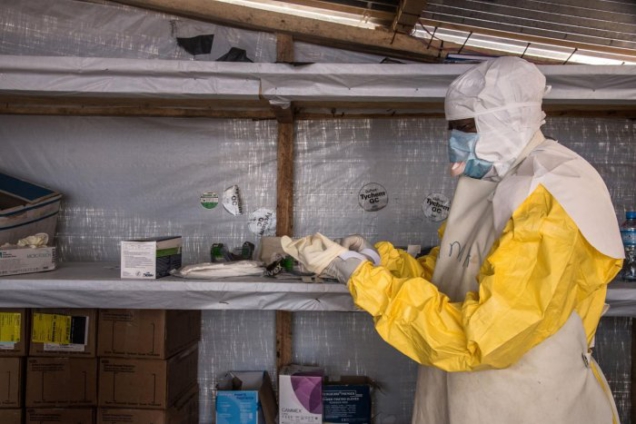The World Health Organisation (WHO) says it has detected a highly infectious and deadly viral disease that has the potential to spread far and wide.
WHO said the first patient identified in Southern Guinea has already died of the disease in a statement.
Marburg virus disease is said to be in the family of the Ebola Virus and has a case fatality rate of up to 88 per cent.
WHO said it has begun cross-border surveillance, with neighbouring countries put on alert.
This is the first time Marburg, a highly infectious disease that causes haemorrhagic fever, has been identified in Guinea and West Africa.
Marburg, which is in the same family as the virus that causes Ebola, was detected less than two months after Guinea declared an end to an Ebola outbreak that erupted earlier this year.
Samples taken from a now-deceased patient and tested by a field laboratory turned out positive for the Marburg virus.
The patient had sought treatment at a local clinic, where a medical investigation team had been dispatched to probe his worsening symptoms.
Gueckedou, where Marburg has been confirmed, is also the same region where cases of the 2021 Ebola outbreak in Guinea and the 2014–2016 West Africa outbreak were initially detected.
Efforts are underway to find the people who may have been in contact with the patient.
An initial team of 10 WHO experts, including epidemiologists and socio-anthropologists, is on the ground helping to investigate the case and supporting the national health authorities to step up emergency response swiftly.
Cross-border surveillance is also being enhanced to detect any cases, with neighbouring countries on alert quickly. In addition, the Ebola control systems in place in Guinea and neighbouring countries are proving crucial to the emergency response to the Marburg virus.
Marburg is transmitted to people from fruit bats and spreads among humans through direct contact with the bodily fluids of infected people, surfaces and materials.
Illness begins abruptly, with high fever, severe headache and malaise. Many patients develop severe haemorrhagic signs within seven days.
Case fatality rates have varied from 24% to 88% in past outbreaks depending on virus strain and case management.
Although there are no vaccines or antiviral treatments approved to treat the virus, supportive care – rehydration with oral or intravenous fluids – and treatment of specific symptoms improves survival.
A range of potential treatments, including blood products, immune therapies and drug therapies, are being evaluated.
Latest Stories
-
MELPWU signs first-ever Collective Agreement with government
9 mins -
I’ve not been evicted from my home – Tema Central MP refutes ‘unfounded’ reports
10 mins -
After Free SHS, what next? – Alan quizzes and pledges review to empower graduates
41 mins -
Wontumi FM’s Oheneba Asiedu granted bail
51 mins -
Alan promises to amend the Constitution to limit presidential powers
1 hour -
Ghana to face liquidity pressures in 2025, 2026 despite restructuring most of its debt – Fitch
1 hour -
NPP’s record of delivering on promises is unmatched – Bawumia
1 hour -
Mahama: It’s time to dismiss the incompetent NPP government
1 hour -
Today’s front pages: Monday, November 25, 2024
2 hours -
T-bill auction: Government misses target again; interest rates continue to rise
2 hours -
We have a bad technical team; Otto Addo and his team should go – Ernest Thompson
3 hours -
Hindsight: Why Accra Lions’ present problems do not define them
3 hours -
10-year-old Lisa Laryea arrives at Wits Donald Gordon Hospital in South Africa for bone marrow transplant
4 hours -
23 ambassadors inducted to take on 2025 GSTEP Challenge in three regions
4 hours -
Ghana Shea Workers Union inaugurated
4 hours

